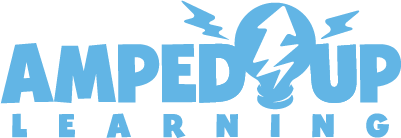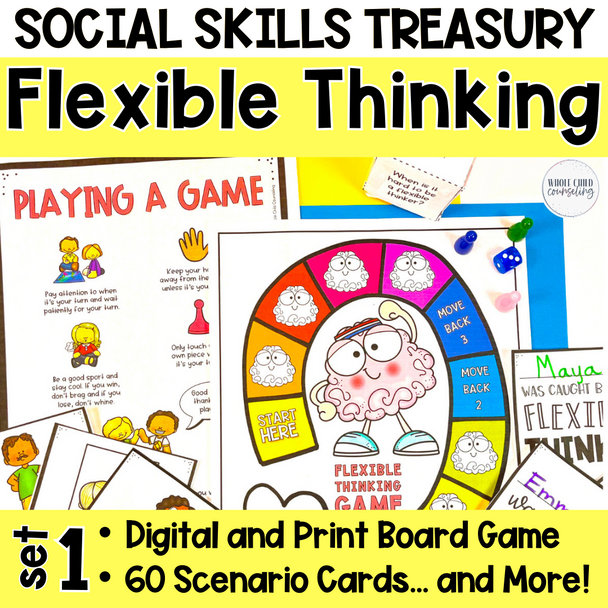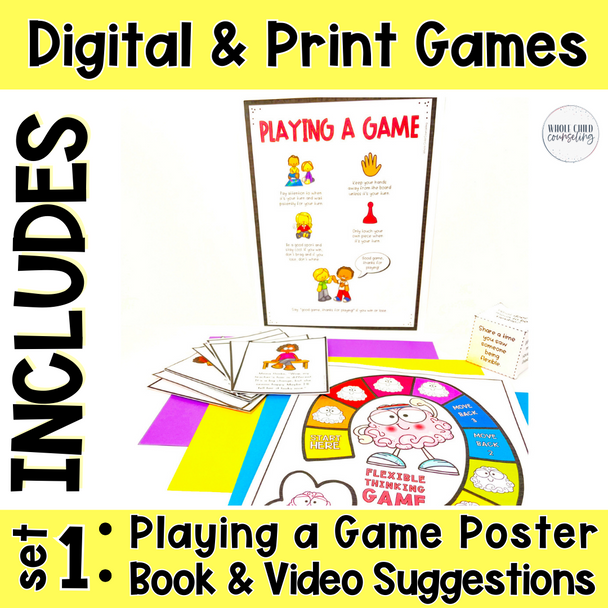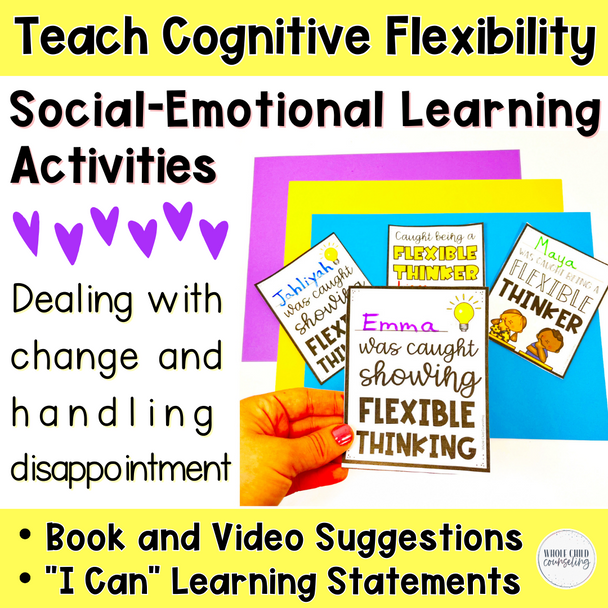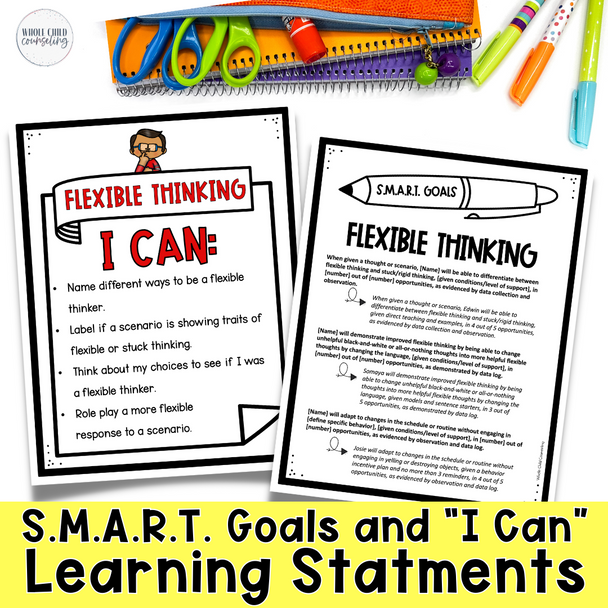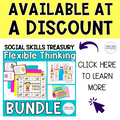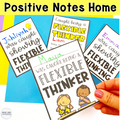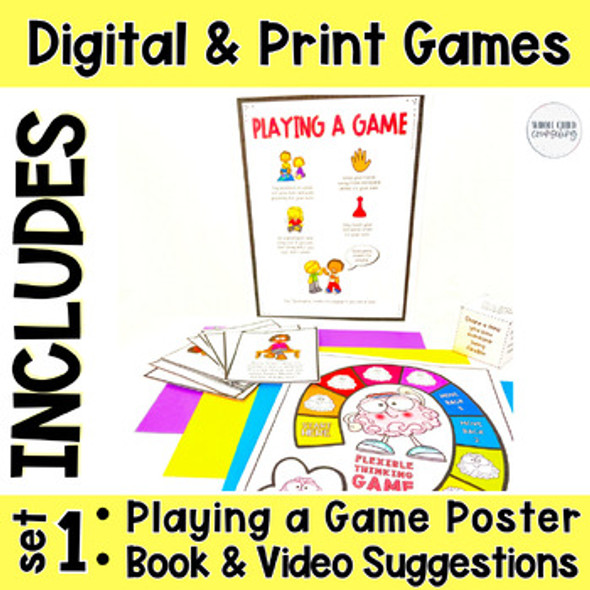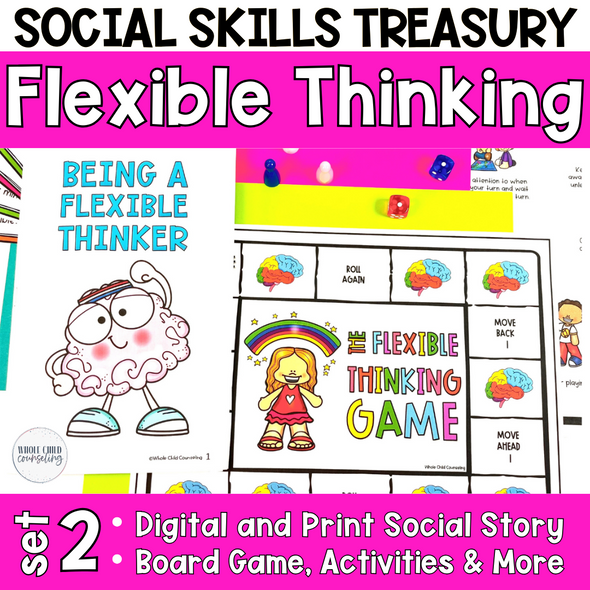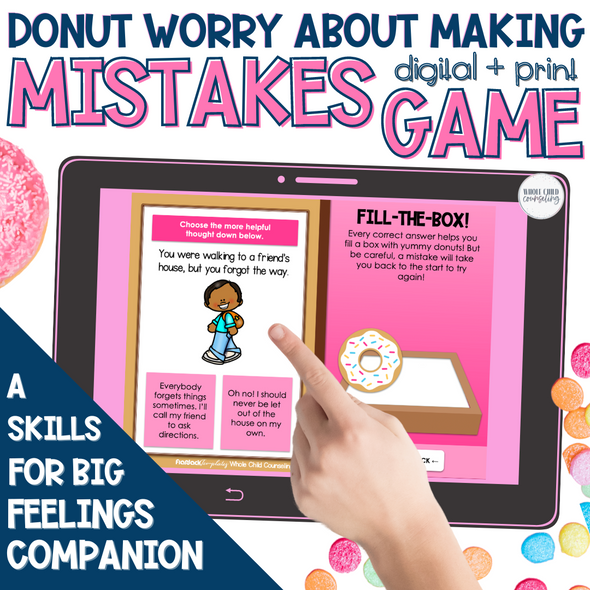Description
Do your students need some help learning how to be a flexible thinker? Address cognitive flexibility in counseling sessions and in the classroom with this fun flexible thinking game and activity set! Students will learn what it means to have stuck and flexible thinking by reviewing and discussing flexible versus stuck (or rigid) thinking scenarios, and have fun with engaging games and activities to improve their cognitive shifting abilities. These flexible thinking activities for elementary students are a great way to work on self-awareness, self-management, and self-regulation skills for your elementary-aged students. Flexible thinking is a skill that is helpful in being adaptable, dealing with change, creativity, problem-solving, coping with adversity, and handling disappointment, so it's an important skill to teach children!
Set 1 Included Resources: ✨
✔ Game Board with Spinner, Pawns, and Dice in a Digital and Printable Version
✔ 45 Flexible Thinking Scenario Cards with a Digital and Printable Version
✔ Stuck and Flexible Thinking Sorting Mats
✔ "I Can" Learning Targets Poster
✔ Playing a Game Visual Poster
✔ Dice with Reflection Questions
✔ S.M.A.R.T. IEP and Treatment Plan Objectives for Easy Goal Writing
✔ Data Collection Sheet
✔ Editable Letter to Families About the Topic
✔ Positive Notes Home
✔ Suggested Companion Resources
✔ Ideas to Extend and Practice the Concept
✔ Resources Come in Both Color and Black and White
This resource is part of the Social Skills Treasury which is a comprehensive and engaging series of social skills activities and resources designed to help you address lagging skills with kids in a fun way!
This is a comprehensive resource that comes in a zip file with PDF, Google Slides, and a Powerpoint file. Please ensure you have the appropriate software to open these files before purchasing.
Want a discount? Check out my: ✨
➜ Flexible Thinking Social Skills Treasury Bundle 3 sets
➜ Social Skills Treasury Growing Bundle!
Who This Resource Is For: ✨
➜ Counselors, social workers, psychologists, speech therapists, occupational therapists, and other educators who are working on self-awareness, self-management, and emotional regulation skills
➜ Teachers, homeschooling parents, and others who want to bring more fun and engaging activities and social-emotional learning into their classrooms and homes
Visit Whole Child Counseling for more social emotional learning and counseling resources.
